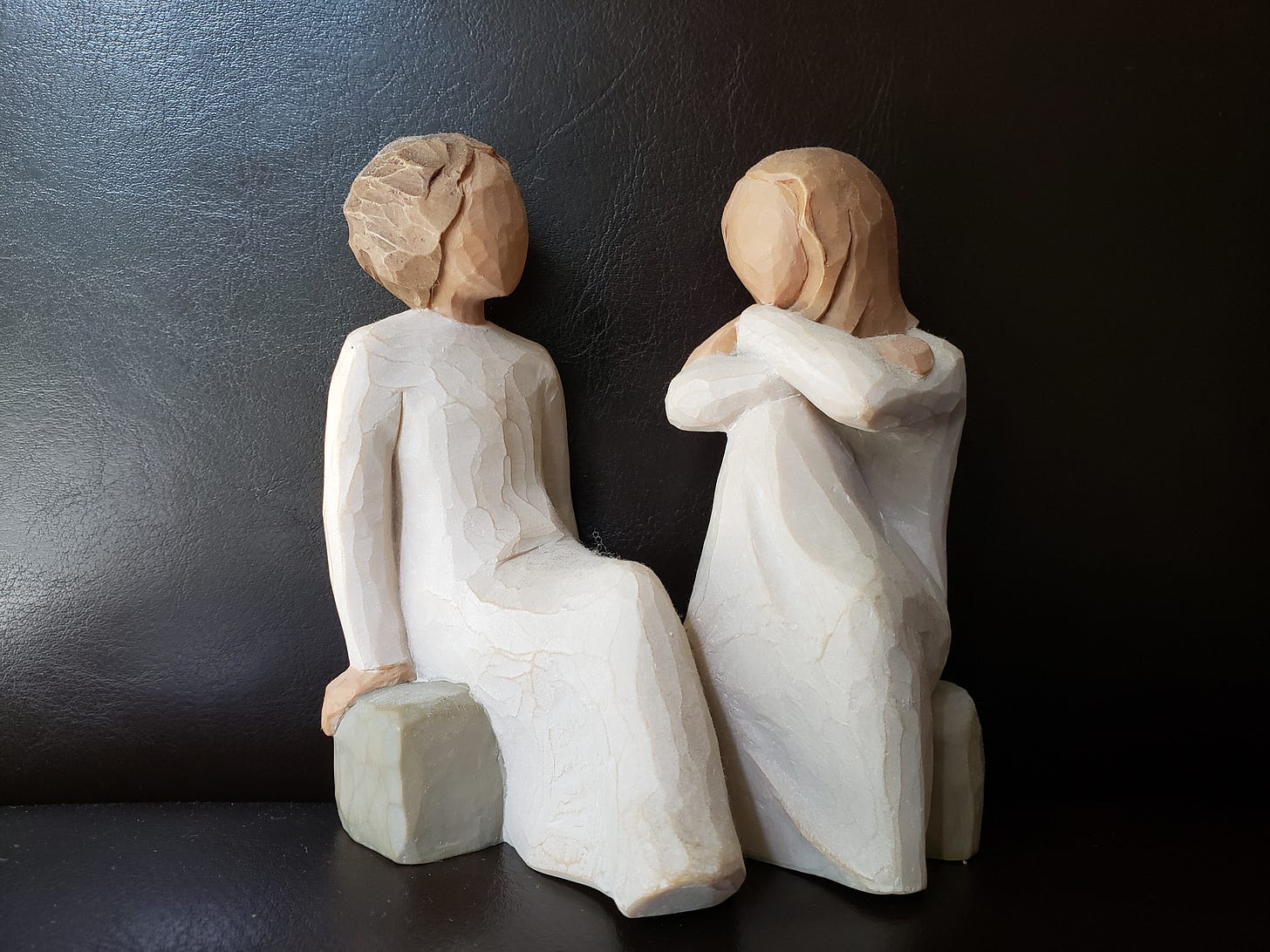In order to heal the wounds of humanity, we’ll need to witness each other’s pain and suffering. This is not an optional part of the journey - it is a critical part of how healing happens.
- Elena Aguilar
Relationships are the center of equity work. It’s all too easy to let the never-ending to-do list take precedence over our relationships. Put another way, if we’re not careful, we can prioritize products over people. It takes intentionality to give our relationships the attention they deserve.
I worked in a busy office complex that was always full of busy people. It would have been easy to just stay at my cubicle and get my work done, only going to school buildings when I was specifically requested. I instead choose to prioritize being present, recognizing this as a key to building and strengthening relationships. I set the expectation that my teammate and I would attend as many of the individual building equity team meetings as possible. Even if I wasn’t on the meeting agenda (which I usually wasn’t), I never once regretted spending my time in this way. I cannot tell you how often I was told, “I’m so glad you’re here. I’ve been meaning to email you.” Being there helped lift the burden of “one more thing to do” (send an email or make a phone call) simply by being present.
In addition to being able to answer questions or provide resources, I was able to hear the celebrations and the struggles, which gave me a more accurate picture of the needs of each team. Equity work, after all, is really about meeting needs, and you can’t meet people's needs if you can’t name people’s needs.1 This also helped me get a pulse on the staff culture and climate, which was useful in tailoring the professional development that I would provide to the building.
A point that’s worth unpacking is the significance of meeting people in their space as much as possible. This seems obvious when it comes to meetings at schools, but I would argue that it’s even more important when it comes to interacting with partners in the community. Intentionally going to their office, event, community center, or favorite coffee shop allows people to be in spaces that are safe and comfortable for them. I’ve learned that this practice goes a long way in helping people to feel heard, and valued.
More often than you may think, simply being present also opened the door for me to be invited into somebody's story. Given my position, oftentimes these were stories of pain - stories of microaggressions, stories of oppression, and stories of injustice. I often called these “parking lot conversations” because many of them actually took place in parking lots. Other times they would be in hallways or an empty conference room after a meeting was over. Every single time I walked away feeling the weight of honor that comes with bearing witness to someone’s unique story and, at least for a moment, carrying their pain with them. Healing often happens when people feel heard and understood.
We can’t build authentic relationships unless we are intentional about truly being present when we’re with someone. One of the best compliments I received from an equity facilitator was, “Thank you for your support. I know you have lots of things you do. But whenever you’re here, I feel like I’m the only person you support.” It is so important for people to feel seen and valued, whatever their need may be, and nothing communicates this better than being authentically present with them.
When was a time you were glad you showed up?
I’m excited for us to be able to learn from each other as I share what I’ve learned. It’s important that sharing and learning be welcoming and inclusive.
Expectations for comments:
Be curious
Be kind
Comments not aligning with these expectations will be deleted.
“Complaining” is often a symptom of unmet needs. If you’re able to hear the subtext of what’s being said in the complaint, chances are high you’ll be able to identify the needs.






You really are the very best at being present.